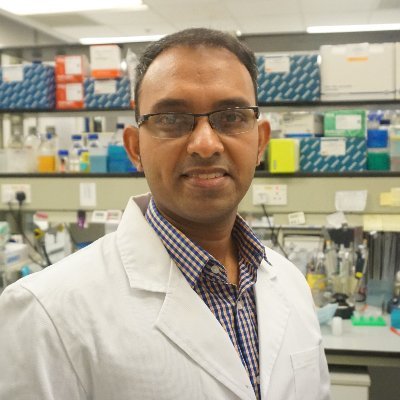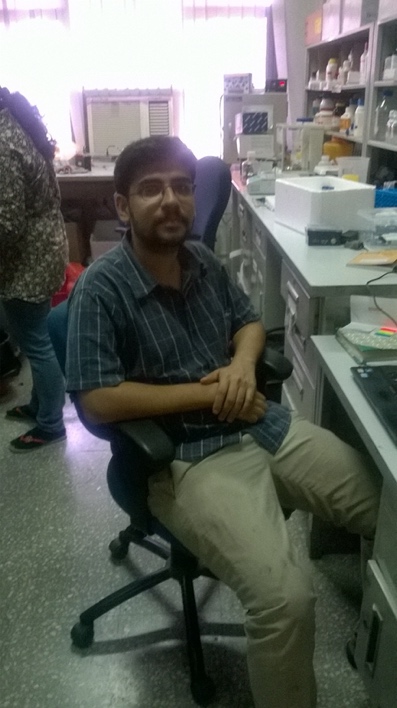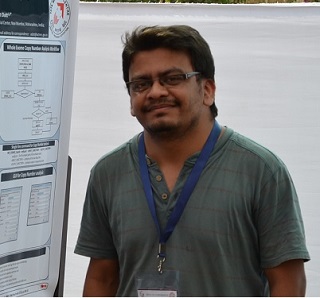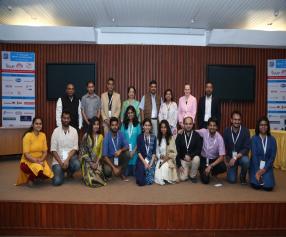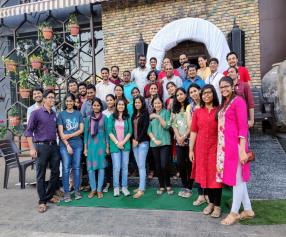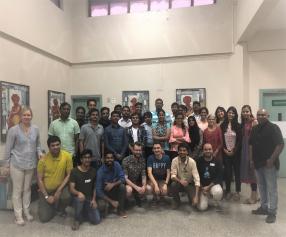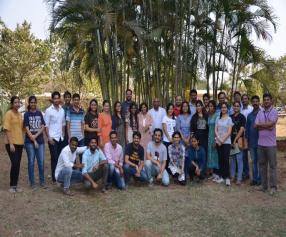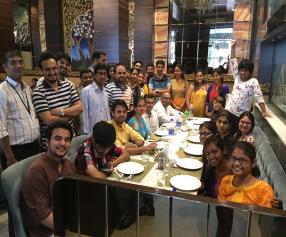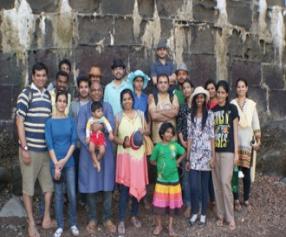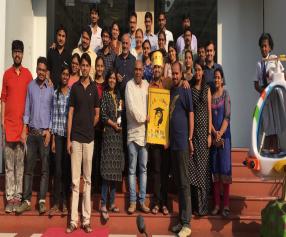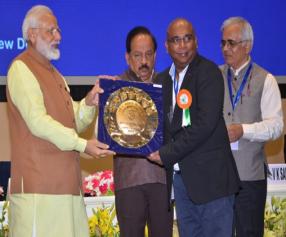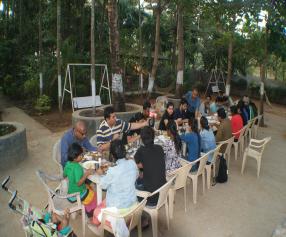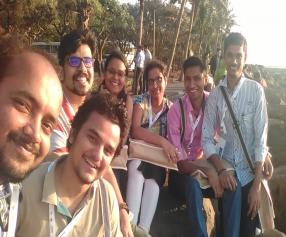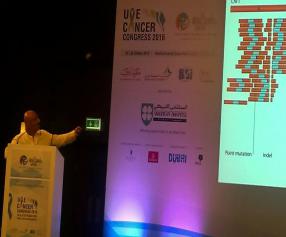
Principal Investigator
- Home
- Dr. Amit Dutt
Dr. Amit Dutt
Principal Investigator
Honors and Recognitions
- 2023 Tata Innovation Fellowship Award by Department of Biotechnology, Govt of India
- 2022 Featured among top 75 scientists of India, across all disciplines, shaping the future of the country by the Department of Science and Technology, Govt of India.
- 2018 YIM Boston Young Scientist Award 2018
- 2017 Distinguished Alumni Award, conferred by the Vice Chancellor, Jamia Millia Islamia,
- 2017 Shanti Swarup Bhatnagar Prize for Science and Technology 2017 in Medical Sciences
- 2011 Wellcome Trust/ DBT India Alliance Intermediate Fellowship
- 2010 Ramalingaswami Fellowship Award, Department of Biotechnology, Govt of India
- 2005 Awarded Swiss National Science Foundation Postdoctoral fellowship, Switzerland
Research Interests
The Dutt laboratory focuses on understanding the genetic changes that occur in human cancer cells and how these changes can help develop the next generation of effective targeted therapies and diagnostics to improve treatment of cancer patients, using innovative computational and functional approaches.
RESEARCH
The goal of Dutt laboratory is to understand the somatic genetics of human cancer and help develop the next generation of effective targeted therapies to improve treatment of cancer patients. The group specifically focuses on the genomic features of genetic alterations underlying oncogenesis and cancer progression in the lung, breast, cervical, gallbladder, head and neck, and others cancers. The efforts involve using advanced sequencing methodologies followed by functional validation to study the implications of genetic alterations in identifying novel cancer dependencies, therapeutic strategies, and biomarkers.
Cancer Genomics: Using computational approaches we analyze genome wide alterations underlying the cancer genome such as point mutations, complex structural alterations, and aberrant transcript fusion and expression. We develop robust in-house automated computational pipelines and analytical tools to analyze the high throughput datasets generated by whole exome, transcriptome and genome sequencing such as Waterhose, ClinOme, Cancer Pathogen Detector, HPVDetector, DepRanker,RVD, COVID qPCR Analyzer and others. We recently developed TMC-SNPdb - the first Indian germline SNPdb.
Functional Genomics: The genome-discovery efforts made in the laboratory are paired with functional validation using biochemical, molecular, cell based experimental approaches, and transgenic mouse models. We perturb the candidate target genes using CRISPR-Cas system and perform genome wide pooled shRNA screen using tumor derived cell lines to complement and validate our findings from genomic approaches. Specifically, the lab focusses on EGFR, FGFR and NOTCH family pathways.
Pathogen Discovery: We have developed a computational pipeline, HPVDetector to detect the presence of HPV DNA sequences in human clinical cancer samples. Next we used a similar aproach to detect the presence of non-typhoidal Salmonella in gallbladder cancer. We are currently expanding our endeavor to explore the presence of several other pathogen sequences in the human cancer genome using Cancer Pathogen Detector (CPD), an improved version of the computation pipeline. Simultaneouly, we are in process to deploy the CPD application as a “Container” onto the host cloud system (like CGC) using Docker system.
Ongoing Research Projects
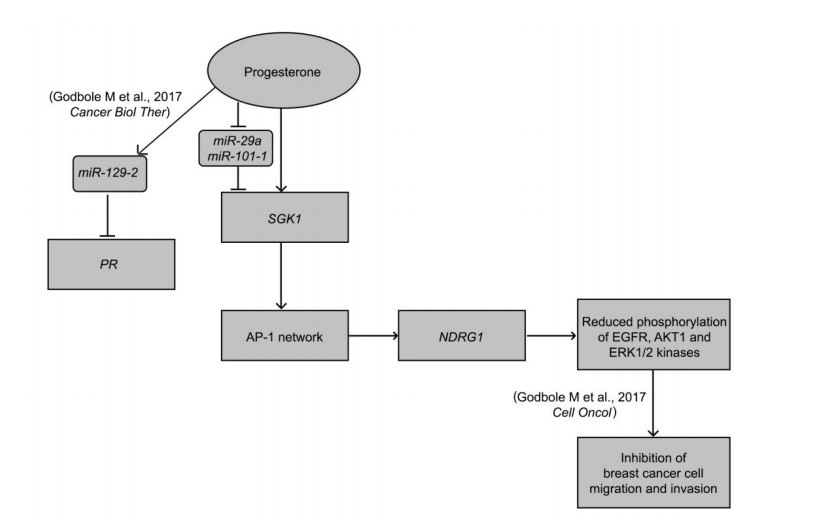
Identifying the Targets of Progesterone in Human Breast Cancer
A randomized study carried out at Tata Memorial Centre showed a disease-free and overall survival benefit for pr… more

Characterization of long non-coding RNAs in human breast cancer
Pre-operative progesterone treatment confers survival benefit to node-positive breast cancer patients. Our recen… more
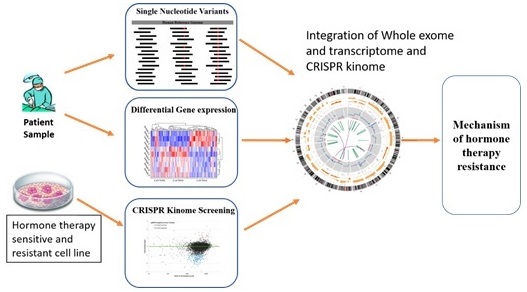
Integrative analysis to understand the mechanism of hormone therapy resistance in…
Breast cancer is most common cancer in India. Of the total incidence of breast cancer in India, about 50 percent… more
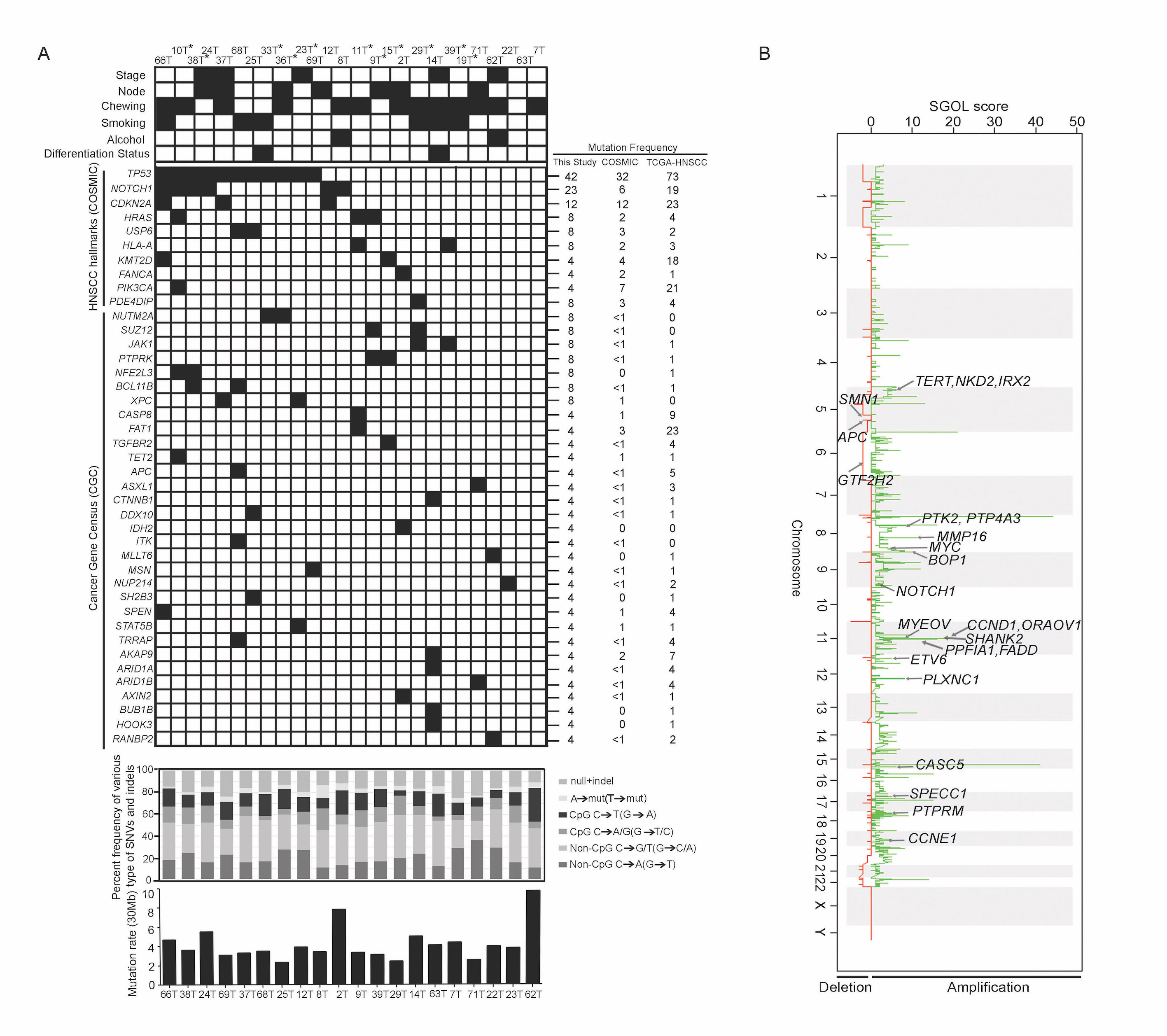
Integrated analysis of Head and Neck squamous cell carcinoma: A genomic approach
Tongue cancer is the most predominant form of oral cancer in developed countries with varying incidence in devel… more

Identification and characterization of potential biomarkers to predict metastasis…
Nodal metastases status among early stage tongue cancer patients (pT1-pT2) plays a decisive role for choice of t… more

Discovery of therapeutically relevant alterations in human genome - a functional g…
Lung cancer remains the leading cause of cancer related deaths across the globe. According to the Globocan, arou… more

Understanding the complexities of human lung cancer genome
Treatment with tyrosine kinase inhibitors (TKIs) is the standard of care for lung cancer patients positive for m… more

An Integrative Approach to understand Resistance to Tyrosine Kinase Inhibitors in…
Lung cancer resistance is the major obstacle to targeted therapies involving tyrosine kinase inhibitors (TKI). I… more

Establishing cell-free nucleic acid as diagnostic and monitoring tool in non-small…
Treatment of cancers like NSCLC has revolutionized in the last decade owing to the identification of driver muta… more

Genome-wide approaches to characterize novel genetic elements causing cancer
The area of my research is to characterize the genomic landscape of somatic alterations in cervical cancer from… more

Genomic approaches to discover novel oncogenes in human cancer
The uncommonness of gallbladder cancer in the developed world has contributed to the generally poor understandin… more

Characterization of therapeutically relevant alterations in human cancer
We are exploring the genomic landscape of papillary thyroid cancer and medullary thyroid cancer in Indian patien… more

Genomic approaches to identify novel endogenous and exogenous genetic elements ass…
Cancer is a complex disease characterized by somatic alterations (genetic and epigenetic), pathogenic infections… more

Integrative biology of genome, epigenome and pathogens in huma
Pathogenic infections have been associated with cancer worldwide. About 18-20% of the malignancies have been att… more

Waterhose: a GUI based automated computational tool to analyze cancer genome datas…
We have developed a fully automated, robust computational pipeline called Waterhose, for analysis of high throug… more
Lab Members
- Supriya HaitSupriya Hait

PhD SRF
PhD SRF
- Ganesh DahimbekarGanesh Dahimbekar

Research Fellow
Research Fellow
- Deepak AmburleDeepak Amburle

Lab Technician
Lab Technician
- Gaurav ChakravortyGaurav Chakravorty

PhD JRF
PhD JRF
- Dr. Ashwin ButleDr. Ashwin Butle

Post Doctoral Fellow
Post Doctoral Fellow
- Rudransh SinghRudransh Singh

PhD JRF
PhD JRF
- Dr. Risha KhandelwalDr. Risha Khandelwal

Post Doctoral Felllow
Post Doctoral Felllow
- Saurabh DalviSaurabh Dalvi

Research Fellow
Research Fellow
- Akshay KarnAkshay Karn

Research Fellow
Research Fellow
- Siddhi RajpurkarSiddhi Rajpurkar

Research Fellow
Research Fellow
- Akshita ChaudharyAkshita Chaudhary

Research Fellow
Research Fellow
- Vidushi BanerjeeVidushi Banerjee

PhD JRF
PhD JRF
- Aniket ChowdhuryAniket Chowdhury

PhD JRF
PhD JRF
- Dr. Deepika LakhwaniDr. Deepika Lakhwani

Visiting Scientist
Visiting Scientist
- Bhargavi BawaskarBhargavi Bawaskar

Research Fellow
Research Fellow
- Dhananjay KawleDhananjay Kawle

Scientific Assistant 'F'
Scientific Assistant 'F'
- Bhasker DharavathBhasker Dharavath

Ph.D. SRF
Ph.D. SRF
- Shailesh ParvateShailesh Parvate

Lab Technician
Lab Technician
- Dr. Archana K RedhuDr. Archana K Redhu

DBT RA-III
DBT RA-III
- Suhail AhmadSuhail Ahmad

PhD SRF
PhD SRF
- Dr. Hemant J. ViraDr. Hemant J. Vira

Scientific Officer 'C'
Scientific Officer 'C'
पूर्व छात्र
- Back to Top
PUBLICATIONS
- 2024Singleton mutations in large-scale cancer genome studies: uncovering the tail of cancer genome. NAR Cancer. 6(1):zcae010.
Desai S, Ahmad S, Bawaskar B, Rashmi S, Mishra R, Lakhwani D, Dutt A
- 2023Role of miR-944/MMP10/AXL- axis in lymph node metastasis in tongue cancer. Communications Biology. 6(1):57.
Dharavath B, Butle A, Pal A, Desai S, Upadhyay P, Rane A, Khandelwal R, Manavalan S, Thorat R, Sonawane K, Vaish R, Gera P, Bal M, D'Cruz AK, Nair S, Dutt A
Deciphering the mechanisms of action of progesterone in breast cancer. Oncotarget. 14: 660-667.Chakravorty G, Ahmad S, Godbole MS, Gupta S, Badwe RA, Dutt A
Development and characterization of a patient derived orthotopic xenograft of therapy resistant breast cancer. Oncology Reports. 49(5): 99.Butti R, Kapse P, Bhadauriya G, Ahmad S, Chaubal R, Parab P, Kadam R, Mahapatra SS, Shet T, Dutt A, Gupta S, Kundu GC
Contact
Office Contact
Dr. Amit Dutt
Wellcome Trust/DBT India Alliance Int Fellow ACTREC, Tata Memorial Centre Navi Mumbai, 410 210 INDIA+91 (022) 2740 5000/ 6873 5000 Extn-5056 adutt[at]actrec[dot]gov[dot]in Lab Website




















